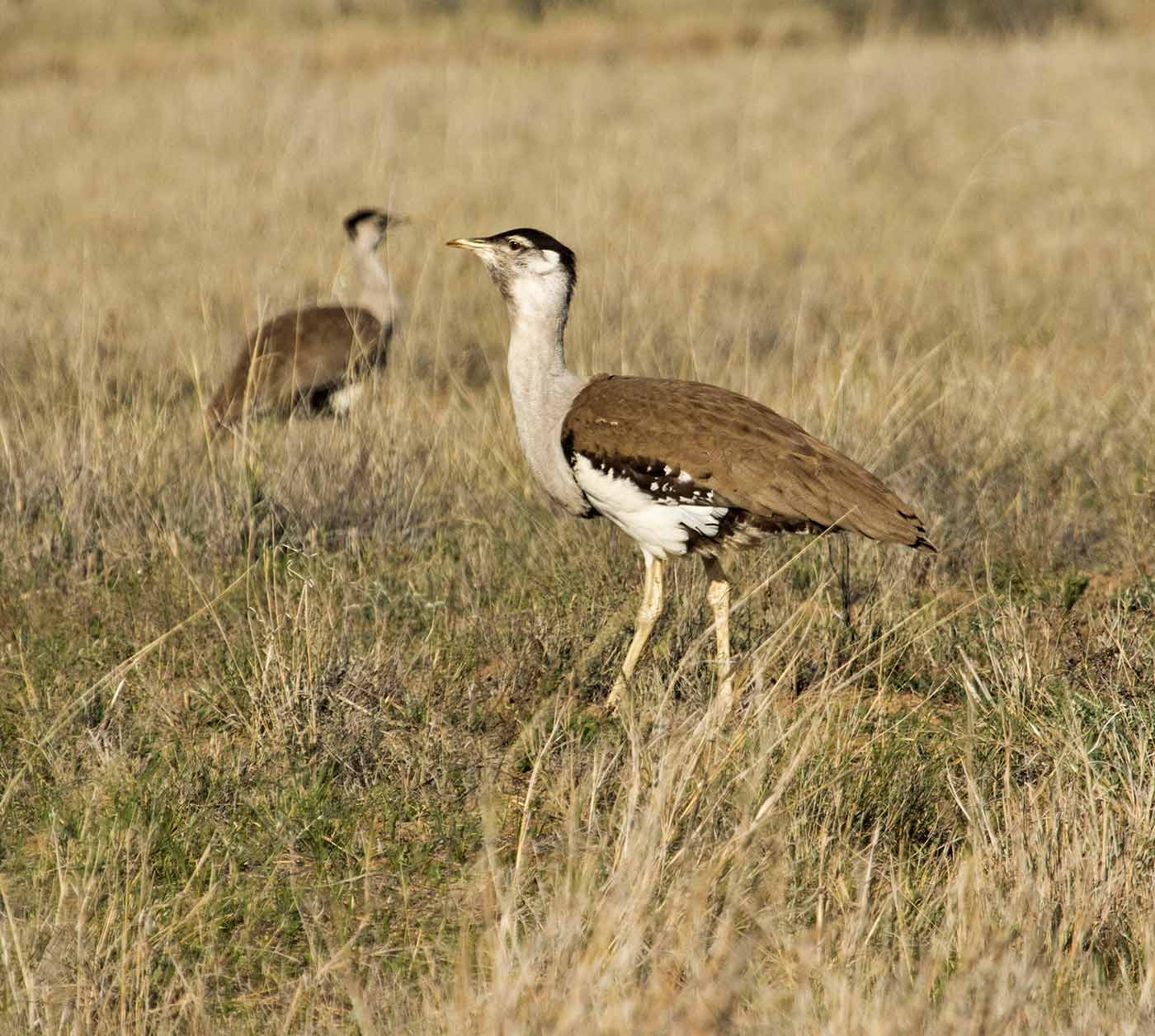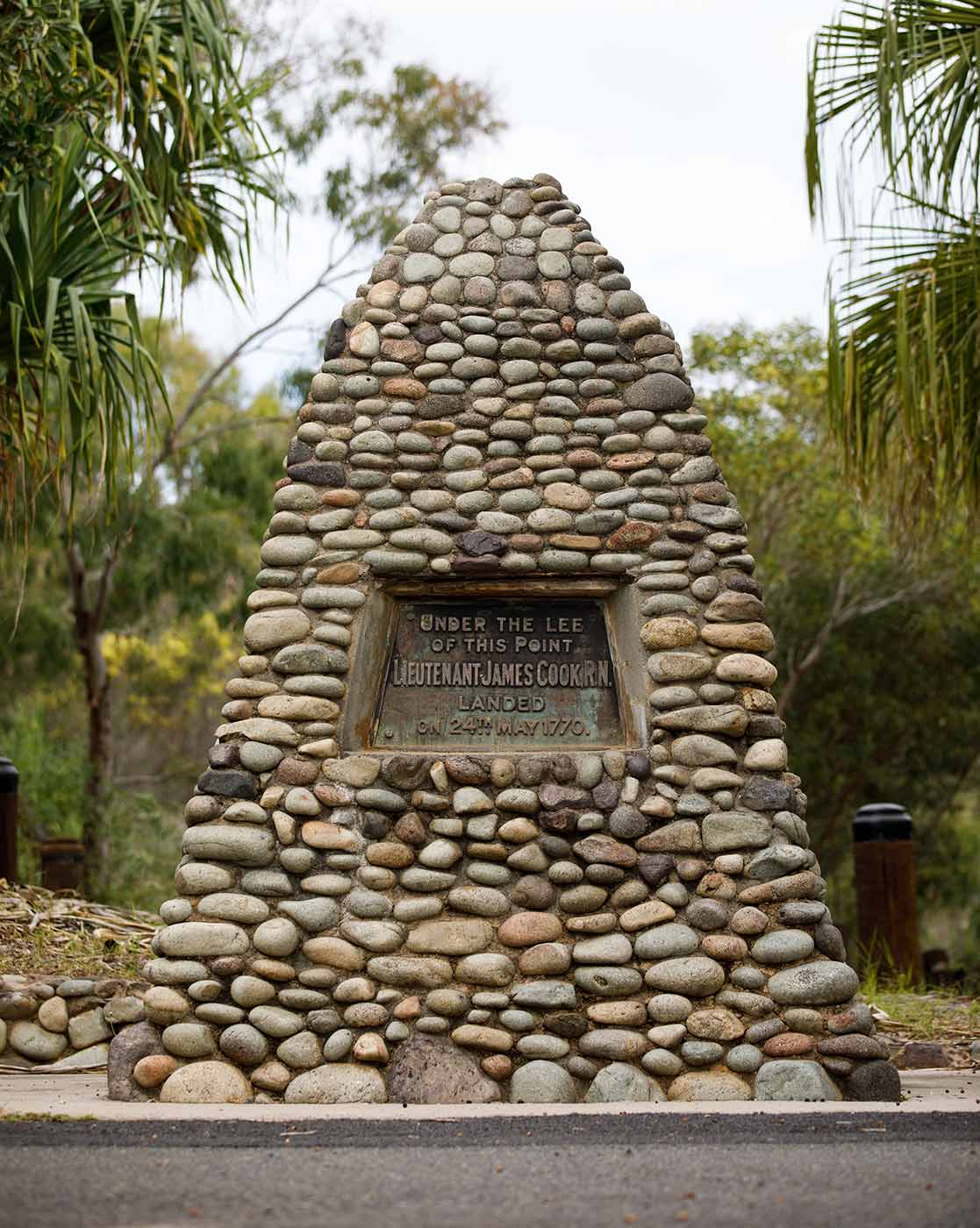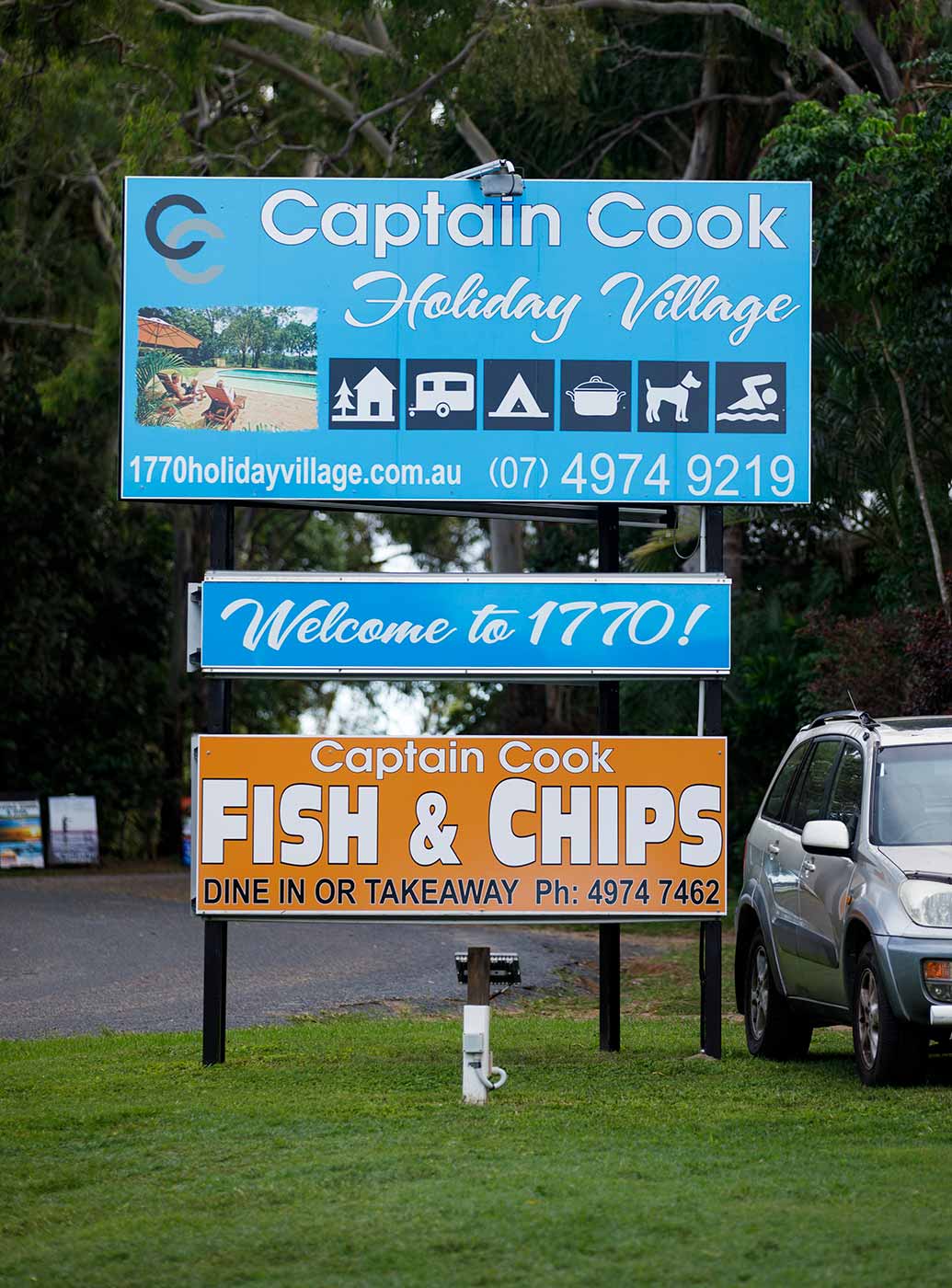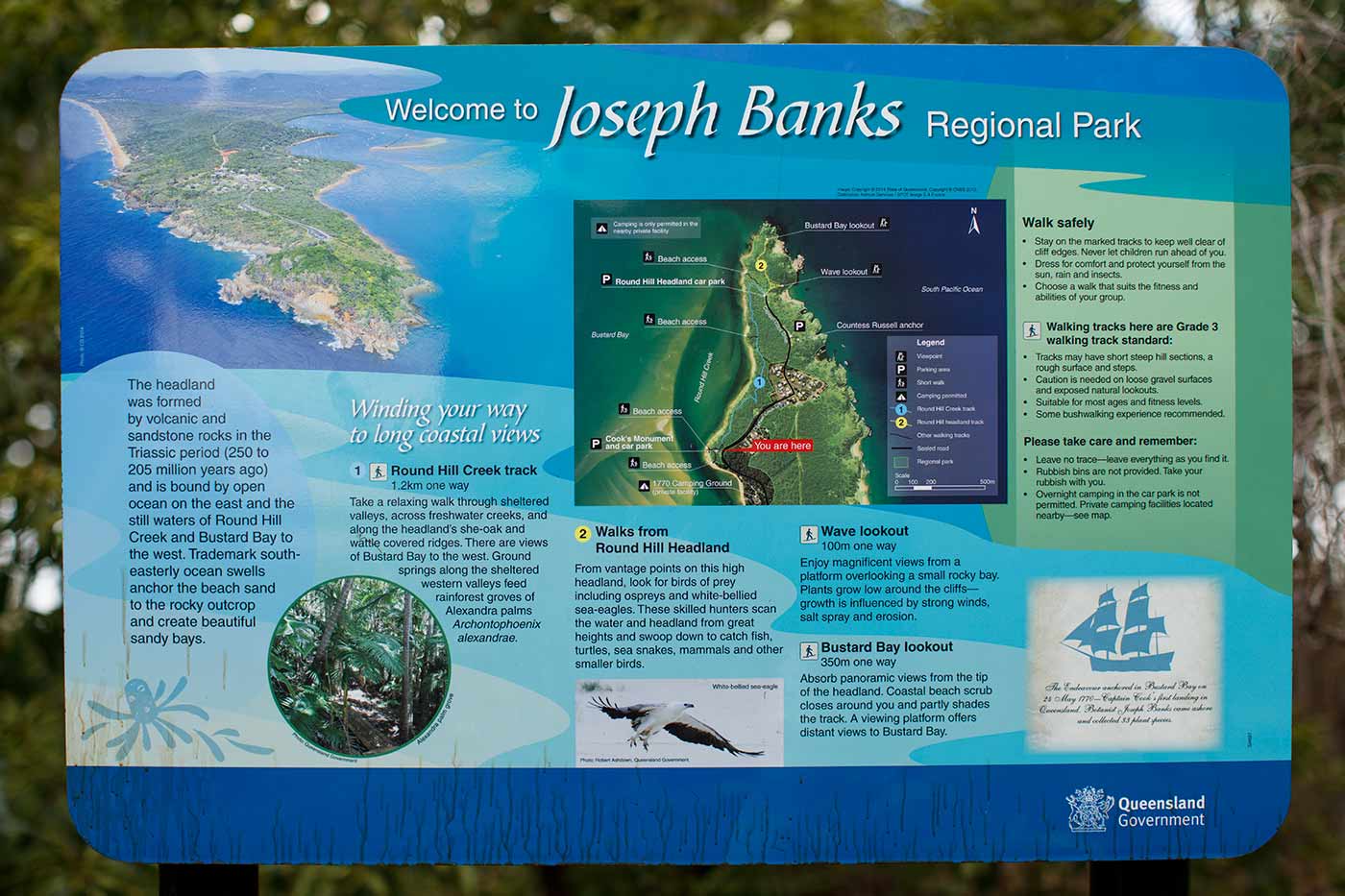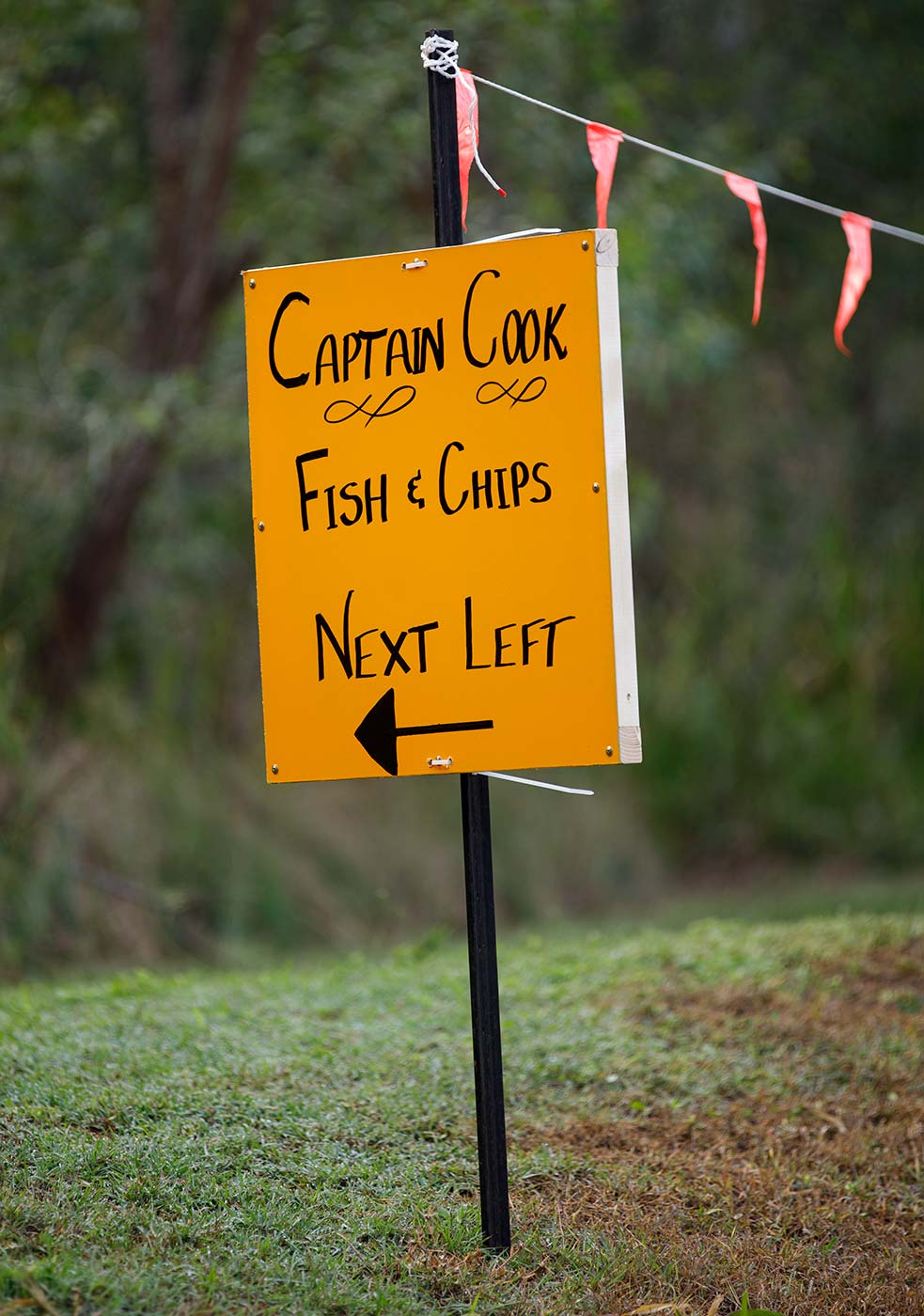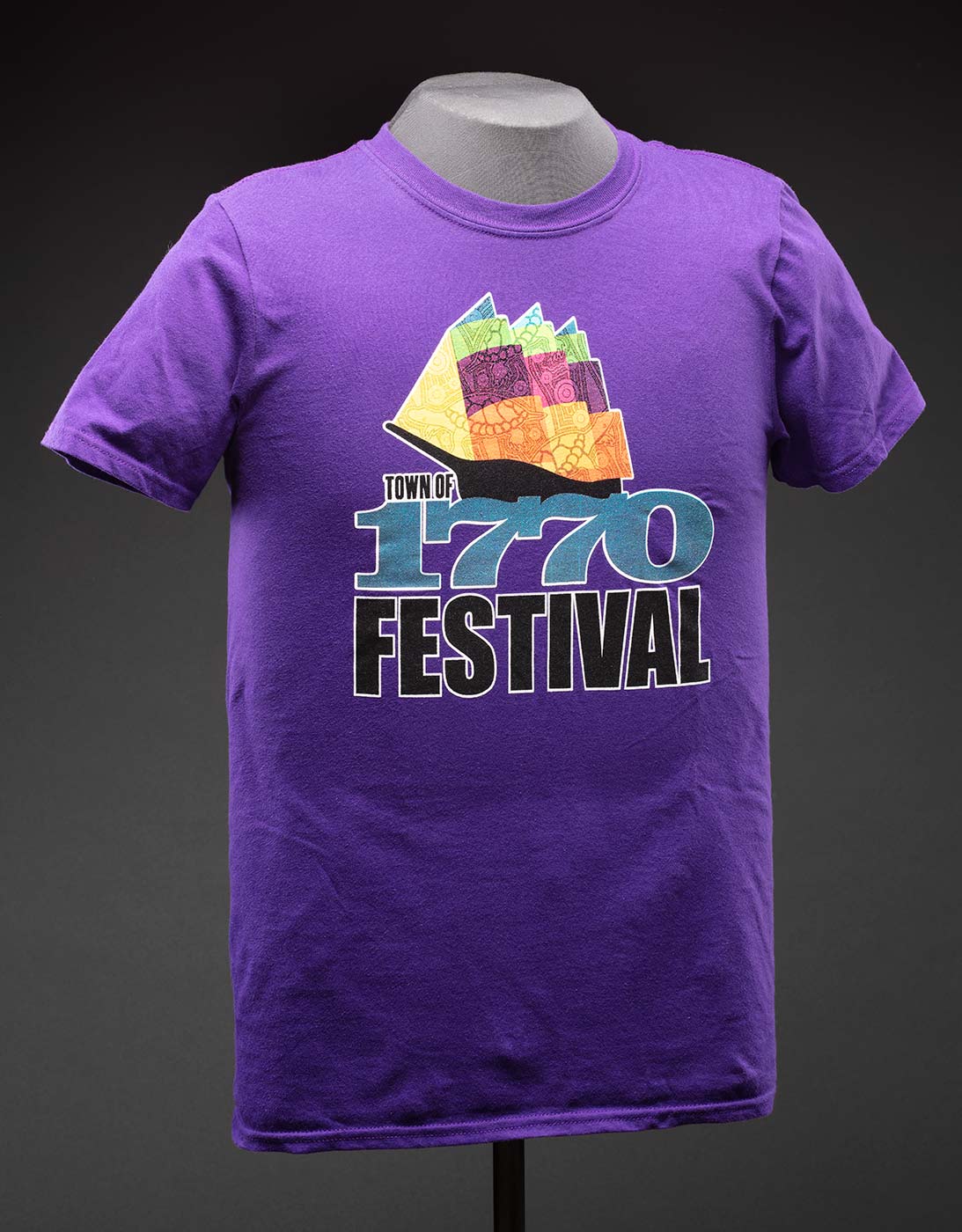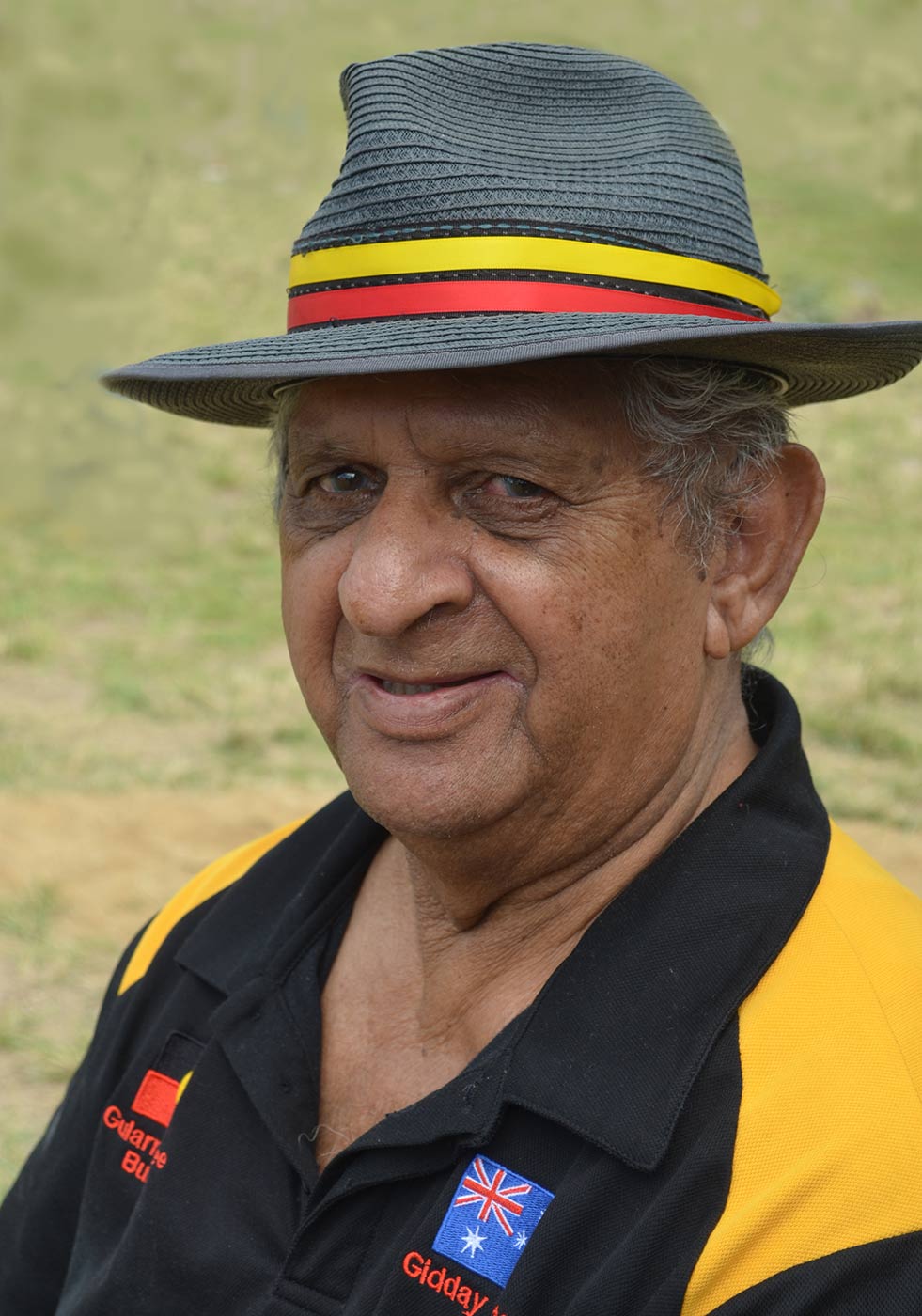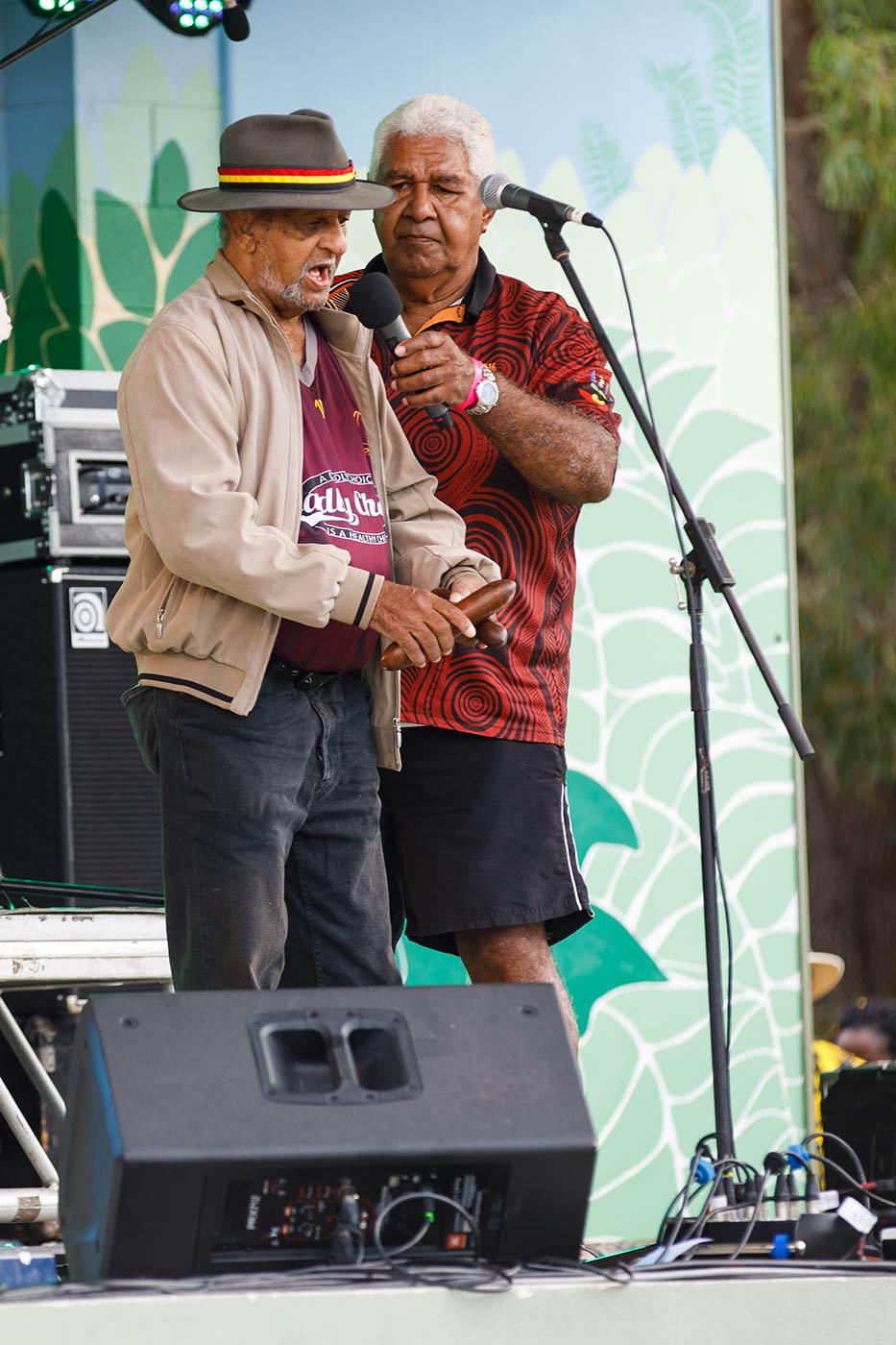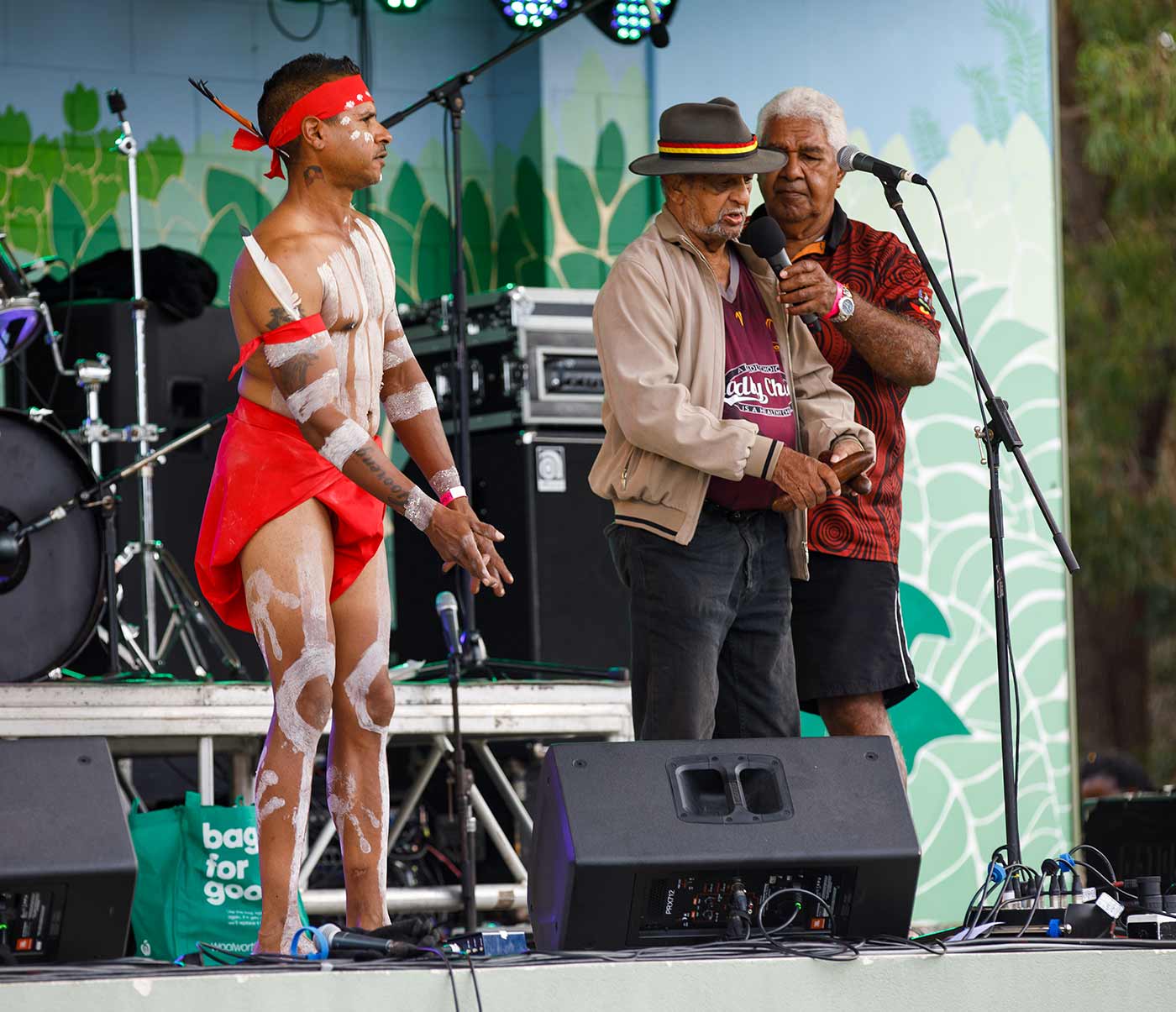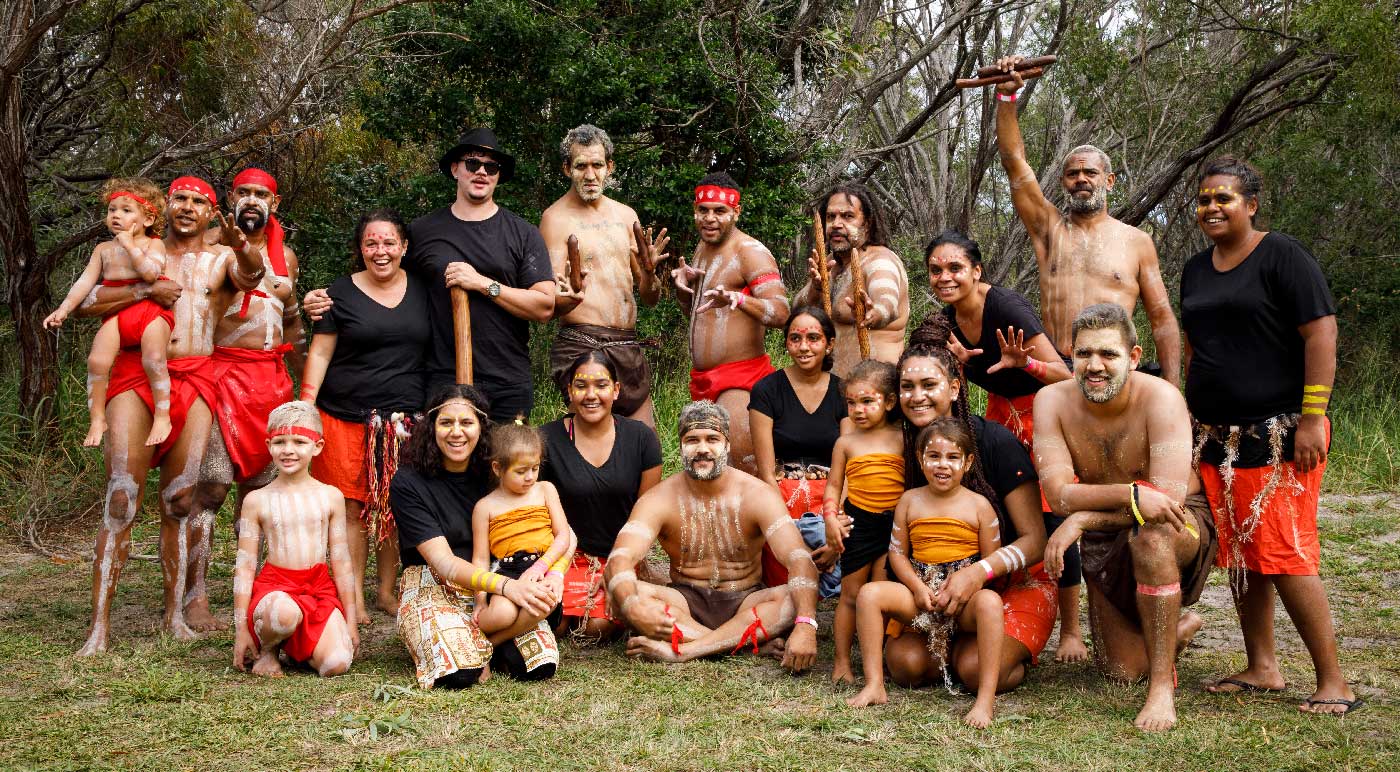Warning: This page contains the name, images and voice of a recently deceased Gooreng Gooreng Elder.
24°09’01” South 151°53’07” East
James Cook, 23 May 1770:
We saw some Bustards such as we have in England, one of which we kill’d … which occasioned my giving this place the name of Bustard Bay.
Joseph Banks, 24 May 1770:
At Dinner we eat the Bustard we had shot yesterday, it turnd out an excellent bird, far the best we all agreed that we have eat since we left England.
Gooreng Gooreng Traditional Owners talk about their ancestors’ first encounter with James Cook and share the language of their landscape around what is today known as Seventeen Seventy. Produced by the ABC in partnership with the National Museum of Australia. View transcript
Traditional Owner Goongaree Goondill Bunda (Everett Johnson) shares the language of the landscape around what is today known as Seventeen Seventy. Produced by the ABC in partnership with the National Museum of Australia. View transcript
Sandy loam country
Gooreng Gooreng people know this part of central Queensland as Gooragan, meaning ‘sandy loam country’. It is a landscape they know through story and song. Some say the curved coast where the Endeavour anchored looks like a dugong.
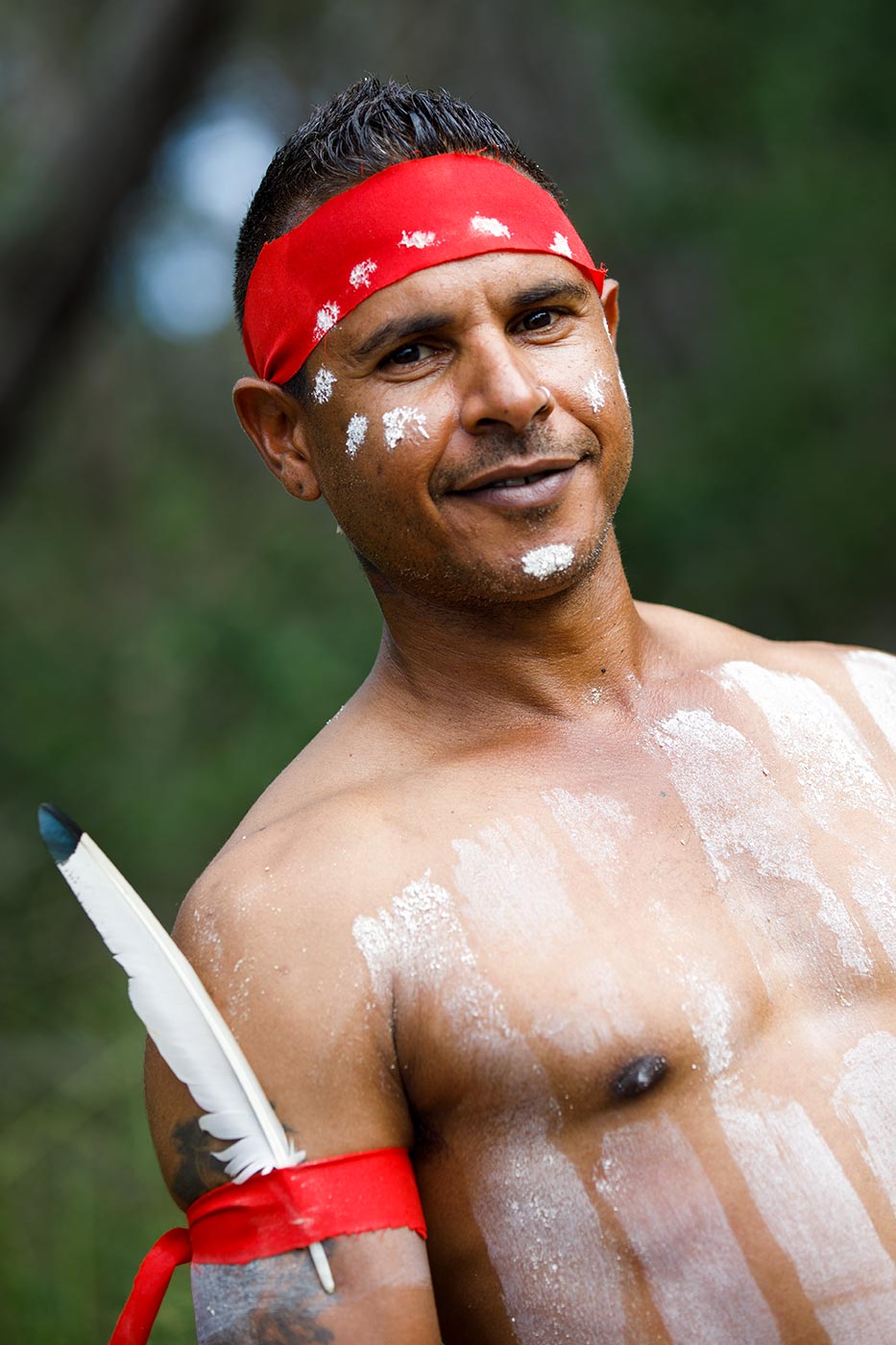
During their short stay here, Joseph Banks and Daniel Solander collected 33 species of plants, including many flowering varieties. Overall, James Cook and Banks described it as a barren and sandy landscape.
Gooreng Gooreng ranger Goongaree Goondill Bunda (Everett Johnson) lives and works on his ancient Country. He has read all the diary entries from the Endeavour’s brief stay. To him, the Endeavour crew missed an opportunity to appreciate the richness and diversity of plant life in the area.
Goongaree Goondill Bunda (Everett Johnson), Gooreng Gooreng:
There are all sorts of plants that they missed. They didn’t get to meet our people and learn about our ethnobotany.
Marking the Endeavour’s visit
For many non-Indigenous people in the region, the Endeavour's landing at Bustard Bay is a source of pride. The township was named Seventeen Seventy in the mid-1930s. There are many sites marking this history.
The 1770 Festival
For the 2019 re-enactment, local residents played crew members and wore costumes made in the 1990s. Since its inception, performances have ranged from bawdy cross-dressing comedy to thoughtful historical re-enactment. Bianca Wellsteed, the 2019 Creative Director, choreographed school children carrying blue bunting representing the ocean. Bianca’s daughter, Bella, played the role of the bustard.
Debbie O’Flaherty, 1770 Festival Event Manager:
Since 1992, the 1770 Festival has commemorated 24 May 1770. Those 28 years have seen many changes, but the sharing of culture and performance by our Traditional Custodians, the Gooreng Gooreng people, has been a constant. The 250th anniversary since Cook’s encounters in our Country unite our stories as we celebrate walking together into a shared future.
Norelle Watson, Gooreng Gooreng:
To mainstream society, the idea of the festival is to celebrate Cook and the coming of Europeans. But for our people, we are there to show that we were always here. It’s very much about keeping culture alive and giving a strong sense of identity — cultural identity — to our children.
Connecting through culture
Since 1993, Gooreng Gooreng people have welcomed visitors to their Country at the annual 1770 Festival.
Juckan Gooragan (Uncle Merv Johnson), a renowned Gooreng Gooreng Elder, initiated the involvement. Every year, from 1993 to 2019, Juckan gave a Welcome to Country and members of his family performed cultural dances.
Juckan Gooragan, Gooreng Gooreng Elder:
1770 [Festival] is very spiritual. It’s a place where families all get together. It’s something that I look forward to. I think that culture brings people together and it stays with them.
Sadly, in late 2019, Juckan Gooragan passed away. The Johnson family gave the Museum permission to tell his story in memory of his legacy.
Gooreng Gooreng dancers
The Gooreng Gooreng dancers are a multi-generational troupe who come from across the region to perform at the 1770 Festival. They begin with Gooragan, the white sandy loam country dance, to wake their ancestors and let them know that their people are back on Country. They also perform animal dances. Towards the end of the performance, they invite visitors to join in a butterfly dance.
Unfinished business
Some Gooreng Gooreng people blame Cook for the disruption — to language, culture and religion — caused by British colonisation.
Norelle Watson, Gooreng Gooreng:
It was the beginning of a horrific story of loss, death and sorrow. Our ancestors suffered diseases, massacres where innocent blood was shed, and forced removal from their country.
People say, ‘Move on, it’s time to move on, let’s get on with things’. But when I look around me, I see some of the injustices that our people still face today. Our young people suffer the consequences of colonisation and transgenerational trauma is passed on to the next generations — high incarceration rates, discrimination, chronic disease, high infant mortality rates, poverty and the appalling life expectancy gap remains. These are just some of the issues that we have in our communities. It has a lot to do with what happened back then.
Our people are more than survivors, we are overcomers, and we keep getting stronger, educated, more united, and keep our culture alive by living our traditions, laws and customs.
We are proud of our Aboriginal heritage, capable and hard working, with ancient cultural values of respect, sharing and caring, honour and kinship connections that kept our people strong, back then, and will keep us striving for better outcomes as we move forward into the future.
Education resources
These resources cater for students in Years 3 to 6 and all activities align with the Australian Curriculum. Years 3 and 4 align with the history content and Years 3 to 6 align with the cross-curriculum priority of Aboriginal and Torres Strait Islander Histories and Cultures.
